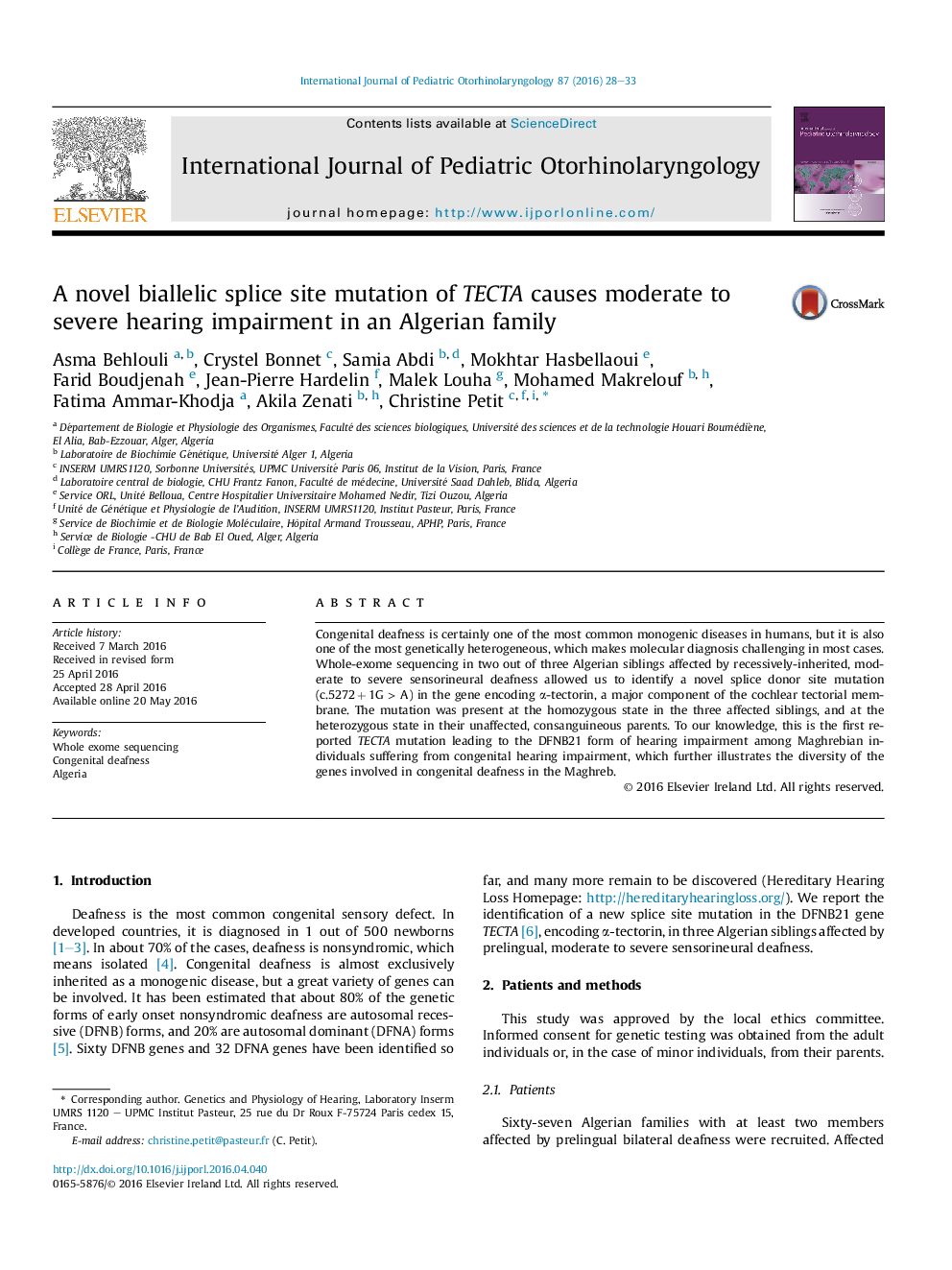| Article ID | Journal | Published Year | Pages | File Type |
|---|---|---|---|---|
| 4111440 | International Journal of Pediatric Otorhinolaryngology | 2016 | 6 Pages |
Congenital deafness is certainly one of the most common monogenic diseases in humans, but it is also one of the most genetically heterogeneous, which makes molecular diagnosis challenging in most cases. Whole-exome sequencing in two out of three Algerian siblings affected by recessively-inherited, moderate to severe sensorineural deafness allowed us to identify a novel splice donor site mutation (c.5272 + 1G > A) in the gene encoding α-tectorin, a major component of the cochlear tectorial membrane. The mutation was present at the homozygous state in the three affected siblings, and at the heterozygous state in their unaffected, consanguineous parents. To our knowledge, this is the first reported TECTA mutation leading to the DFNB21 form of hearing impairment among Maghrebian individuals suffering from congenital hearing impairment, which further illustrates the diversity of the genes involved in congenital deafness in the Maghreb.
